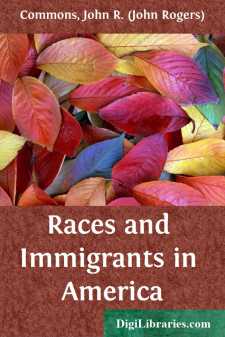Categories
- Antiques & Collectibles 13
- Architecture 36
- Art 48
- Bibles 22
- Biography & Autobiography 816
- Body, Mind & Spirit 145
- Business & Economics 28
- Children's Books 17
- Children's Fiction 14
- Computers 4
- Cooking 94
- Crafts & Hobbies 4
- Drama 346
- Education 58
- Family & Relationships 59
- Fiction 11834
- Foreign Language Study 3
- Games 19
- Gardening 17
- Health & Fitness 34
- History 1378
- House & Home 1
- Humor 147
- Juvenile Fiction 1873
- Juvenile Nonfiction 202
- Language Arts & Disciplines 89
- Law 16
- Literary Collections 686
- Literary Criticism 179
- Mathematics 13
- Medical 41
- Music 40
- Nature 179
- Non-Classifiable 1768
- Performing Arts 7
- Periodicals 1453
- Philosophy 66
- Photography 2
- Poetry 897
- Political Science 203
- Psychology 45
- Reference 154
- Religion 516
- Science 126
- Self-Help 85
- Social Science 82
- Sports & Recreation 34
- Study Aids 3
- Technology & Engineering 59
- Transportation 23
- Travel 463
- True Crime 29
Our website is made possible by displaying online advertisements to our visitors.
Please consider supporting us by disabling your ad blocker.
Races and Immigrants in America
Description:
Excerpt
CHAPTER I
RACE AND DEMOCRACY
“All men are created equal.” So wrote Thomas Jefferson, and so agreed with him the delegates from the American colonies. But we must not press them too closely nor insist on the literal interpretation of their words. They were not publishing a scientific treatise on human nature nor describing the physical, intellectual, and moral qualities of different races and different individuals, but they were bent upon a practical object in politics. They desired to sustain before the world the cause of independence by such appeals as they thought would have effect; and certainly the appeal to the sense of equal rights before God and the law is the most powerful that can be addressed to the masses of any people. This is the very essence of American democracy, that one man should have just as large opportunity as any other to make the most of himself, to come forward and achieve high standing in any calling to which he is inclined. To do this the bars of privilege have one by one been thrown down, the suffrage has been extended to every man, and public office has been opened to any one who can persuade his fellow-voters or their representatives to select him.
But there is another side to the successful operations of democracy. It is not enough that equal opportunity to participate in making and enforcing the laws should be vouchsafed to all—it is equally important that all should be capable of such participation. The individuals, or the classes, or the races, who through any mental or moral defect are unable to assert themselves beside other individuals, classes, or races, and to enforce their right to an equal voice in determining the laws and conditions which govern all, are just as much deprived of the privilege as though they were excluded by the constitution. In the case of individuals, when they sink below the level of joint participation, we recognize them as belonging to a defective or criminal or pauper class, and we provide for them, not on the basis of their rights, but on the basis of charity or punishment. Such classes are exceptions in point of numbers, and we do not feel that their non-participation is a flaw in the operations of democratic government. But when a social class or an entire race is unable to command that share in conducting government to which the laws entitle it, we recognize at once that democracy as a practical institution has in so far broken down, and that, under the forms of democracy, there has developed a class oligarchy or a race oligarchy.
Two things, therefore, are necessary for a democratic government such as that which the American people have set before themselves: equal opportunities before the law, and equal ability of classes and races to use those opportunities. If the first is lacking, we have legal oligarchy; if the second is lacking, we have actual oligarchy disguised as democracy.
Now it must be observed that, compared with the first two centuries of our nation’s history, the present generation is somewhat shifting its ground regarding democracy....


